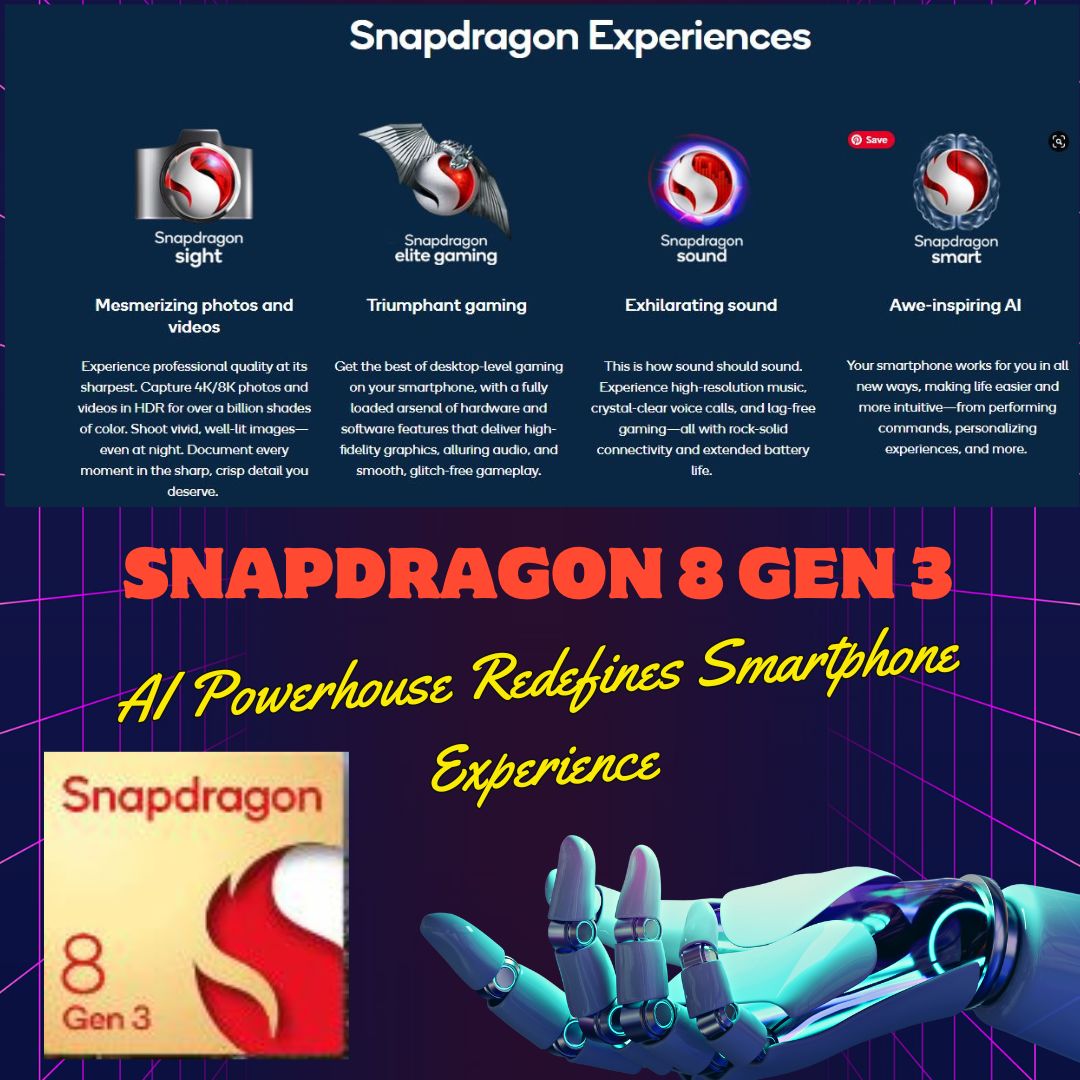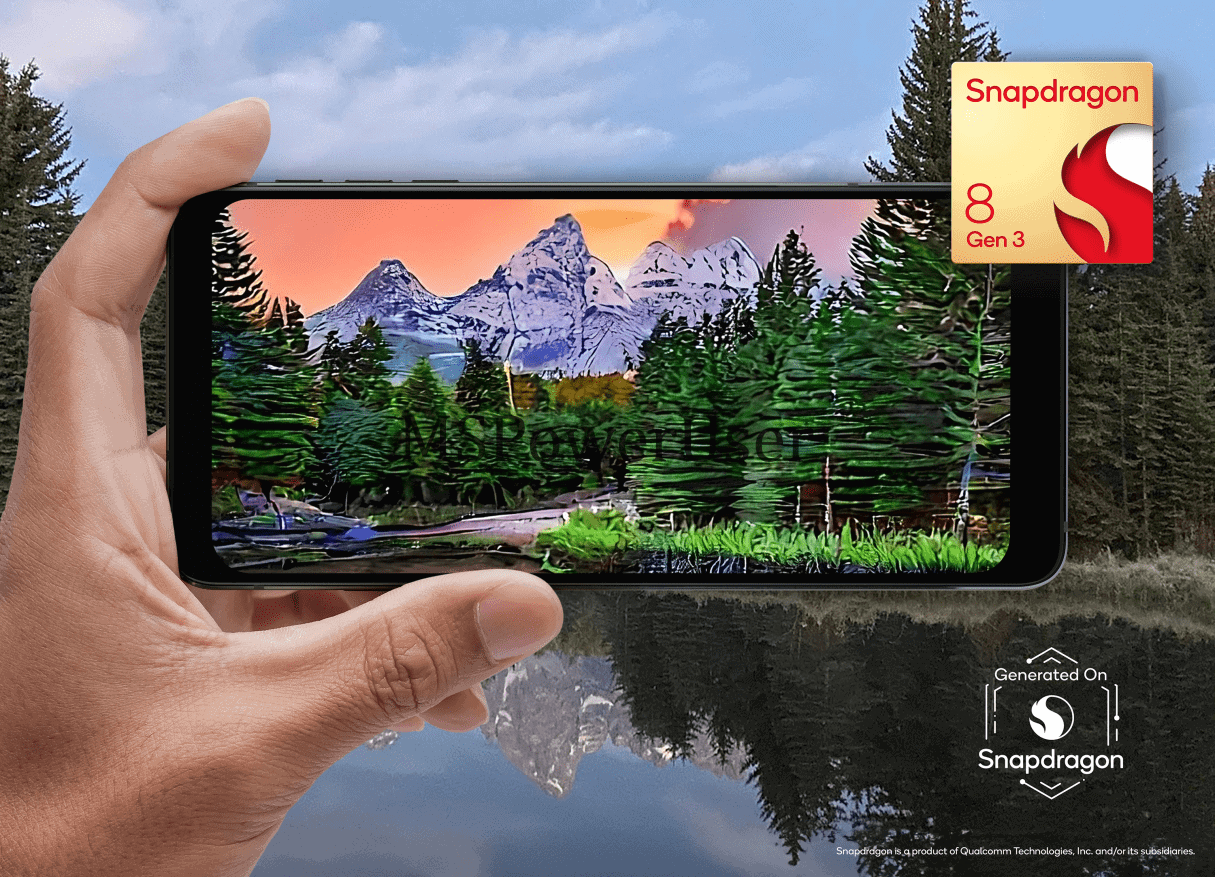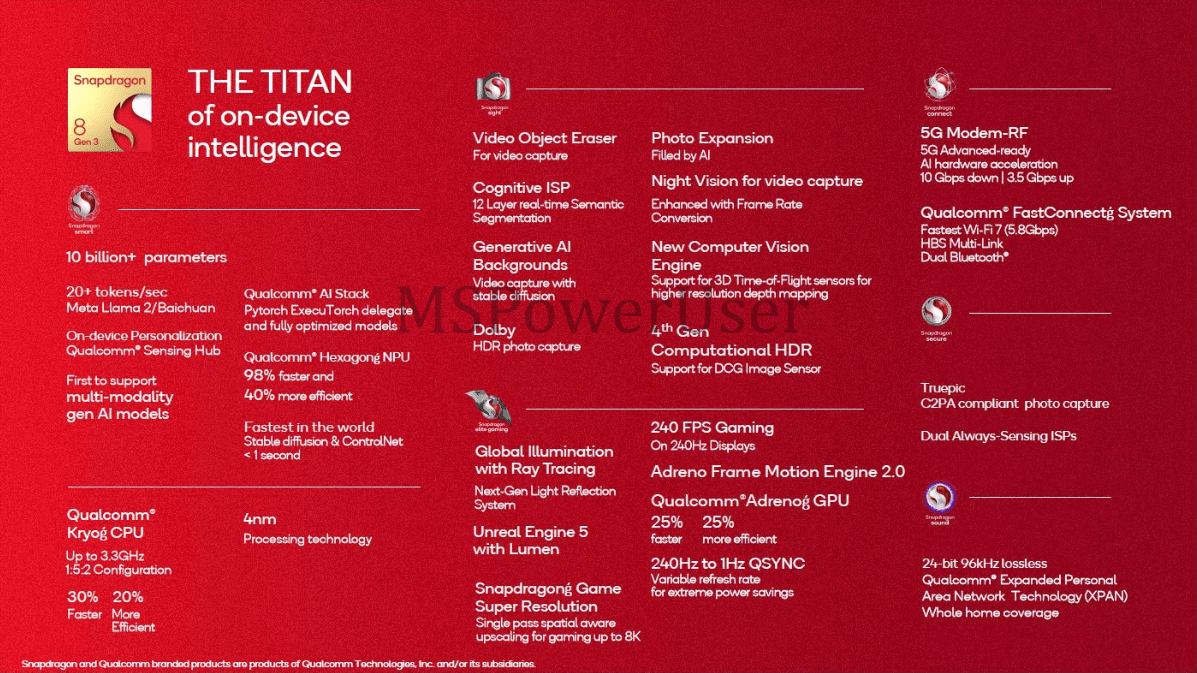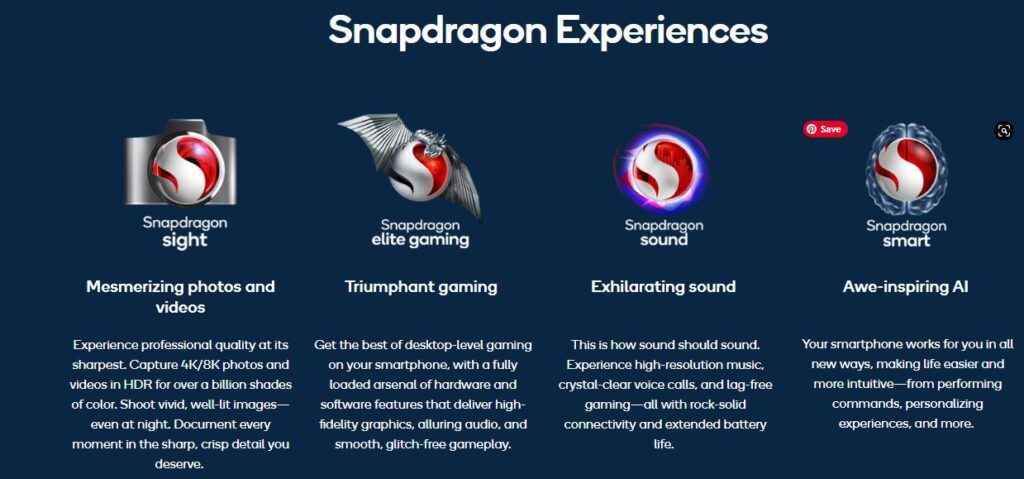
Snapdragon 8 Gen 3
Snapdragon 8 Gen 3: AI Powerhouse Redefines Smartphone Experience.
Breaking News: Qualcomm’s Upcoming Snapdragon 8 Gen 3 Packs a Punch with AI Power Qualcomm, a renowned giant in the world of premium smartphone processors, is on the brink of introducing the third iteration of its Snapdragon 8 chip.

This announcement carries substantial significance, as the current reigning champion, the Snapdragon 8 Gen 2, currently holds the esteemed title of being the second most potent smartphone chip ever, as per Antutu benchmarks. It is only surpassed by the Dimensity 9200+ from Taiwanese manufacturer MediaTek.
The official unveiling is scheduled for Tuesday, but exciting details about the new chip surfaced on Monday. What awaits us is not just improved performance but a remarkable advancement in on-device AI capabilities, as reported by MS Poweruser.
In addition to the expected marginal performance enhancements, such as a 25% faster GPU and a 30% faster CPU, the new system-on-a-chip (SoC) boasts a potent AI engine capable of providing exceptional accuracy for local AI models and running large-language models (LLMs) with over 10 billion parameters. This chip can even handle the text-to-image model Stable Diffusion with the ControlNet neural network.
The mobile hardware industry is increasingly embracing AI. Google, for example, has revamped its Tensor chips to efficiently handle the multitude of AI features found in the latest Pixel phones, allowing them to perform locally without relying on cloud processing. Similarly, Apple has elevated its game with the A17 Pro SoC, bolstering its AI capabilities.
The arrival of AI-enabled chips in consumer devices marks the beginning of a transformative era in technology. These advanced processors, designed to execute complex AI models locally, point toward a future teeming with possibilities. From personalized chatbot assistants and hyper-realistic gaming experiences to real-time health monitoring and adaptive user interfaces, these innovations hold the promise of reshaping the way we interact with our devices.

The prospect of swifter processing, in conjunction with enhanced personalization and heightened privacy, situates these chips as the cornerstone of a forthcoming era in which our devices go beyond mere intelligence, becoming intricately attuned to our individual needs and preferences.
Kent Kersei, the CEO of Invoke AI, a pioneering company specializing in AI image generation and harnessing the capabilities of Stable Diffusion, explained to Decrypt the multitude of advantages that come with running AI directly on a device as opposed to relying on cloud-based computing.
“Cloud-based computation remains a viable choice for larger corporations, but when it comes to individuals seeking to generate content, on-device AI offers a more cost-effective, tailored, and private alternative,” he asserted. He also underscored the potential of Apple’s strategy in implementing a more extensive unified memory system, envisioning a future where a robust local LLM assistant could replace a cloud-based Siri, for instance.

Nonetheless, despite the impressive capabilities of this new chip, Kent Kersei confirmed that Invoke has no immediate intentions of adapting its app for Android or iOS devices.
“Our commercial solution is primarily geared towards intricate workflow processes,” he explained. “While we currently have no immediate plans for a local, open-source Android app, we are closely monitoring usage trends among creative individuals and the advancement of cutting-edge technologies that facilitate mobile deployment.”
At present, iOS users have the option of the Draw Things app for local image generation, while Android users lack a comparable choice.
Kersei expressed optimism about the far-reaching impact of Qualcomm’s new chip on the broader tech landscape.
“Making this chip available for on-device AI enhances the range of capabilities that can be implemented on mobile devices,” he noted, foreseeing app developers integrating on-demand AI features into their offerings as hardware continues to advance.

Nonetheless, every innovation comes with its set of challenges. Kersei highlighted potential difficulties in distributing model weights to end devices, especially for proprietary models like GPT-3 or GPT-4, which are substantial and not open source.
“This can be impractical for proprietary models where safeguarding intellectual property is of paramount importance,” he acknowledged. However, Kersei was quick to emphasize the potential of open-source models like Stable Diffusion or Mistral7B as potential game-changers.

As reported by Decrypt, Mistral7B, a lightweight model trained on 7 billion parameters, has been gaining prominence in the AI community. Decrypt conducted tests pitting its responses against those of more powerful competitors like LlaMA and Stable Beluga 2, and it outperformed them. For context, while Mistral 7B operates with 7 billion parameters, GPT-4 boasts a staggering 1.7 trillion parameters.
Qualcomm’s Snapdragon 8 Gen 3 transcends being a mere microchip; it signifies the dawn of an AI-focused era in mobile technology. With trailblazers such as Qualcomm, Google, and Apple at the forefront, it’s only a question of when your digital assistant will not only safeguard your information but also truly excel in responding to queries and carrying out tasks.
Source: Decrypt
Snapdragon 8 Gen 3: Specifications


Apple iPhone 15: A Stunning Evolution in Smartphone Technology





